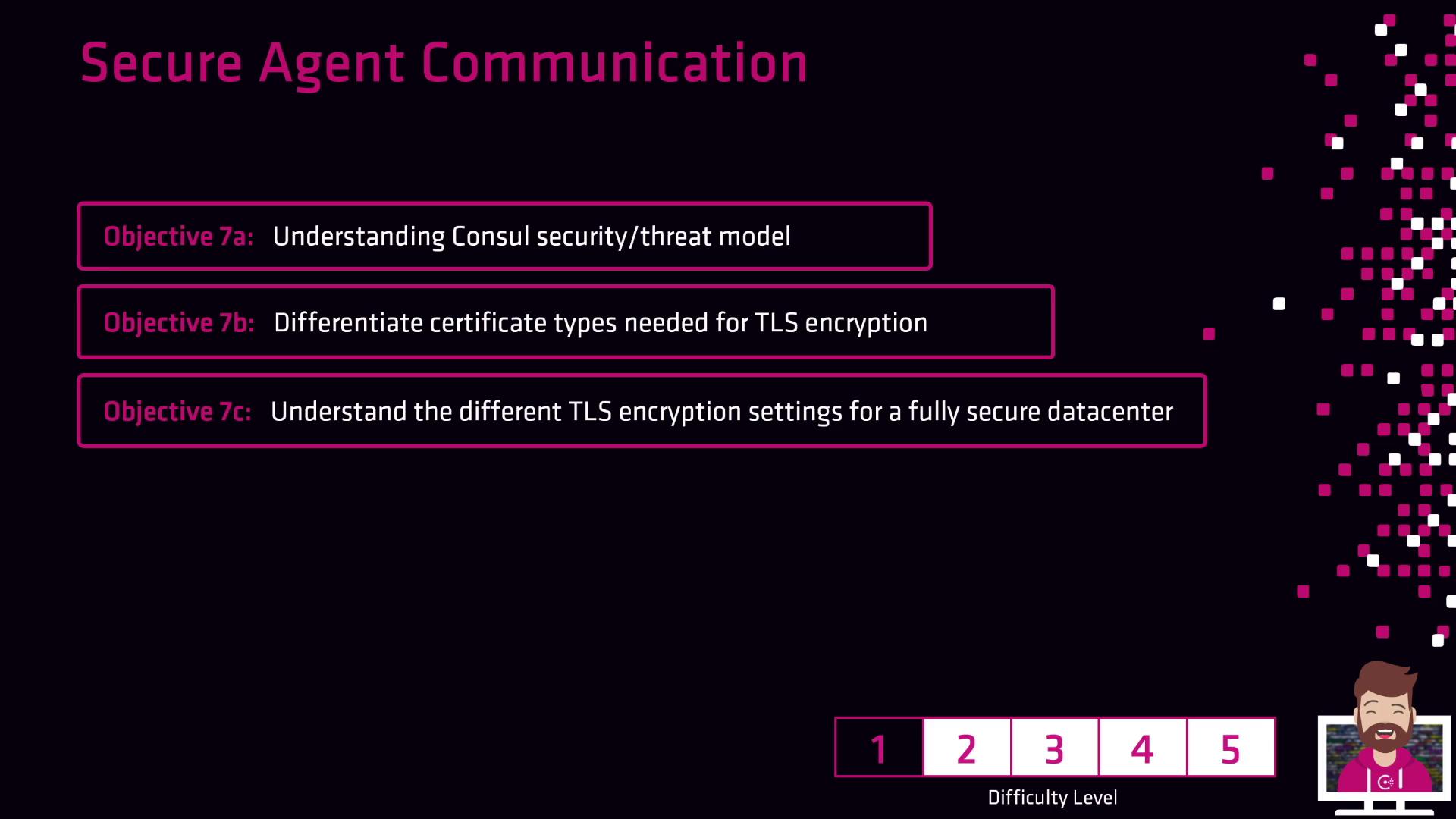HashiCorp Certified: Consul Associate Certification
Secure Agent Communication
Objective 7 Section Overview
In this lesson, we’ll cover how to secure communication between Consul agents in a datacenter. You will learn:
- Consul security model and threat assumptions
- TLS certificate types: server CA, client certificates, and more
- TLS encryption settings to fully lock down your Consul datacenter

Table of Contents
Consul Security Model
Consul’s security model is built around a zero-trust philosophy, where every component must authenticate and authorize requests. The threat model assumes:
- Agents or servers may be compromised.
- Network traffic could be intercepted or manipulated.
- Attackers might attempt to impersonate nodes or services.
Note
Consul uses mutual TLS (mTLS) to enforce identity verification and data confidentiality across all RPC calls.
Key Security Principles
- Authentication: Verify node and service identity using TLS certificates.
- Authorization: Control access via ACL tokens.
- Encryption: Encrypt all RPC and gossip traffic with TLS.
TLS Certificate Types
Consul requires several certificate types to establish encrypted channels. Use the table below to understand their roles:
| Certificate Type | Purpose | Example Configuration |
|---|---|---|
| Server CA | Signs TLS certificates for Consul servers | ca.pem |
| Client Certificate | Authenticates Consul clients (agents) to servers | client.pem, client-key.pem |
| Gossip Encryption Key | Secures gossip layer traffic (optional) | gossip-encryption-key |
Warning
Protect your private keys (.pem files). Unauthorized access may allow attackers to impersonate nodes.
Configuring TLS Encryption
To enforce TLS encryption in Consul, update your agent and server configuration files (config.hcl) with the following parameters:
# Server configuration: config/server.hcl
server = true
verify_incoming = true
verify_outgoing = true
ca_file = "/etc/consul/tls/ca.pem"
cert_file = "/etc/consul/tls/server.pem"
key_file = "/etc/consul/tls/server-key.pem"
# Client (agent) configuration: config/client.hcl
verify_incoming = true
verify_outgoing = true
ca_file = "/etc/consul/tls/ca.pem"
cert_file = "/etc/consul/tls/client.pem"
key_file = "/etc/consul/tls/client-key.pem"
Additional setting for the gossip encryption key:
encrypt = "base64-encoded-gossip-key"
Best Practices
- Rotate TLS certificates and gossip keys regularly.
- Use a dedicated CA for your Consul datacenter.
- Automate certificate issuance with HashiCorp Vault or your PKI.
Links and References
Watch Video
Watch video content